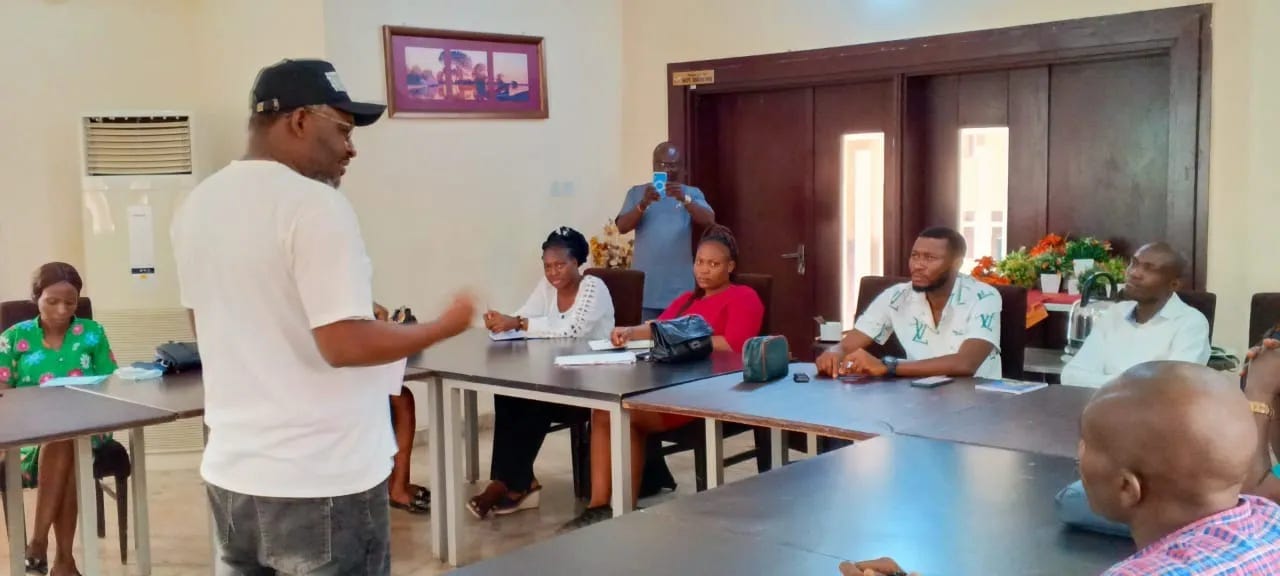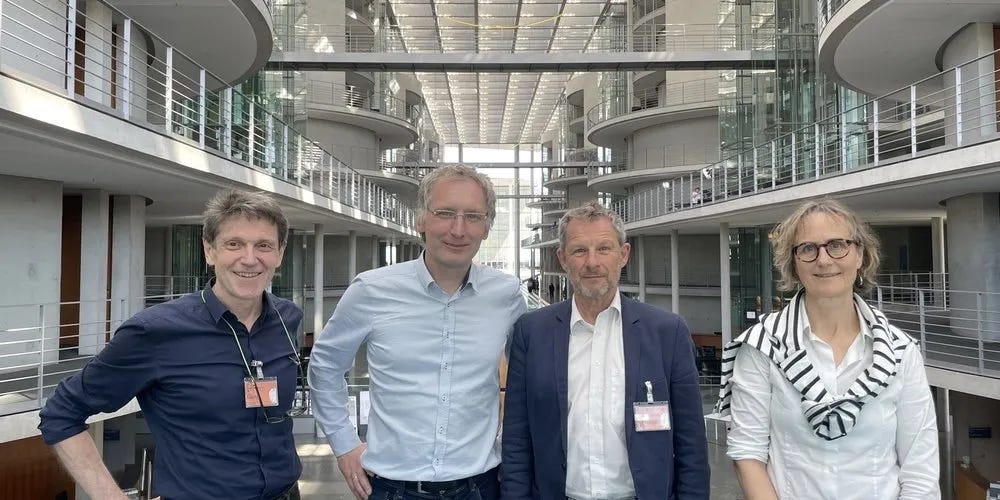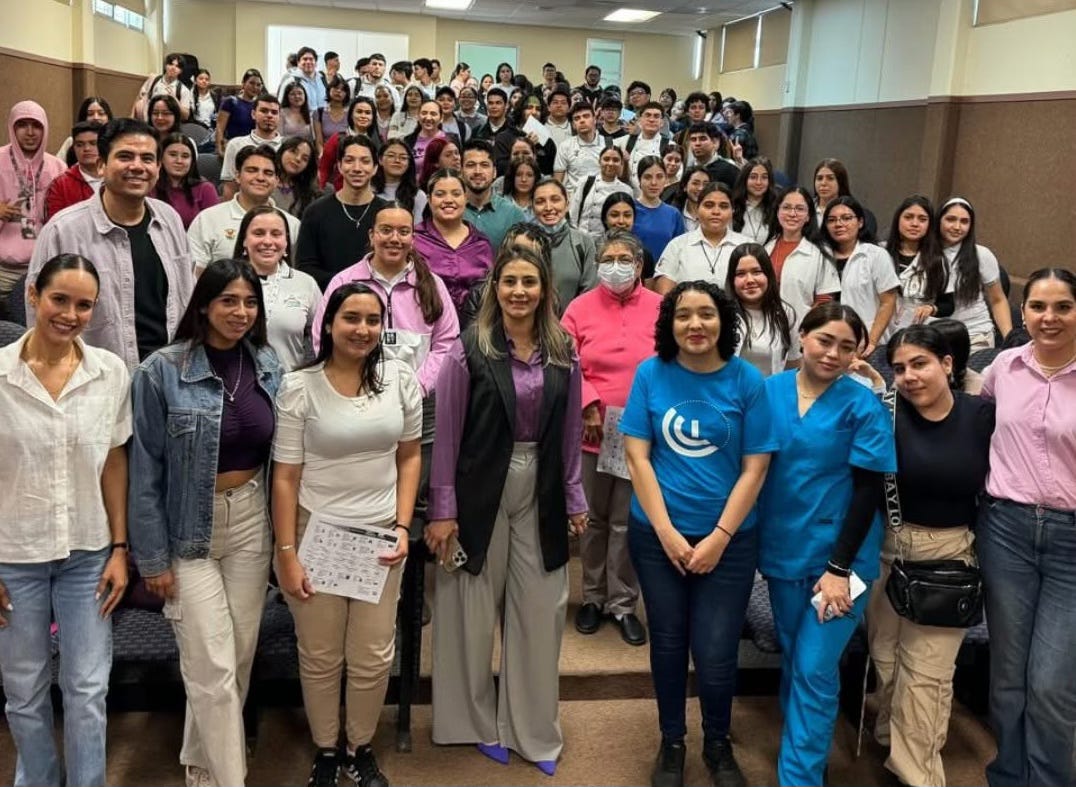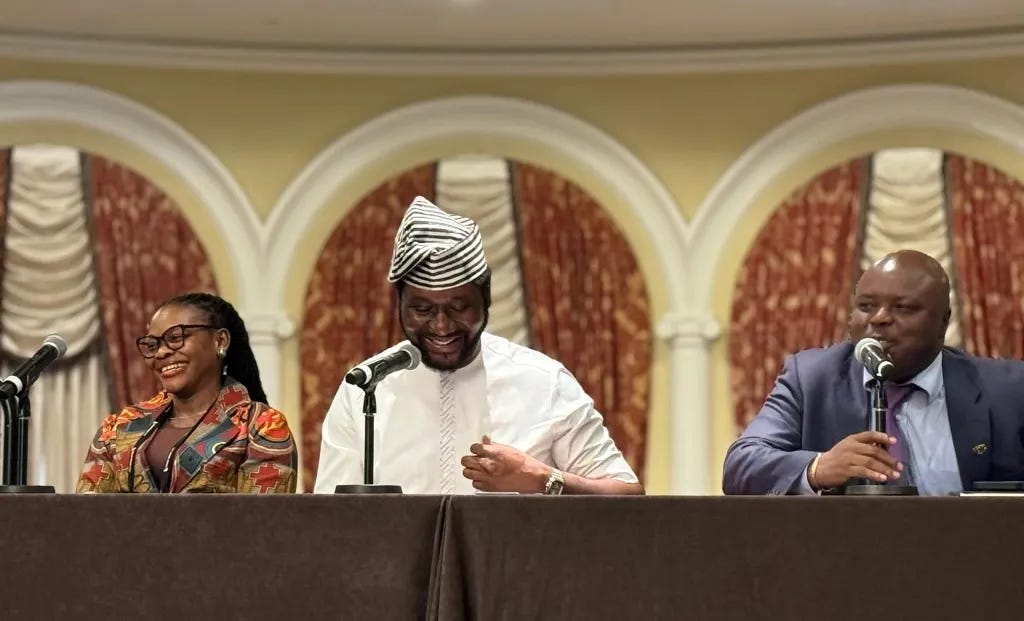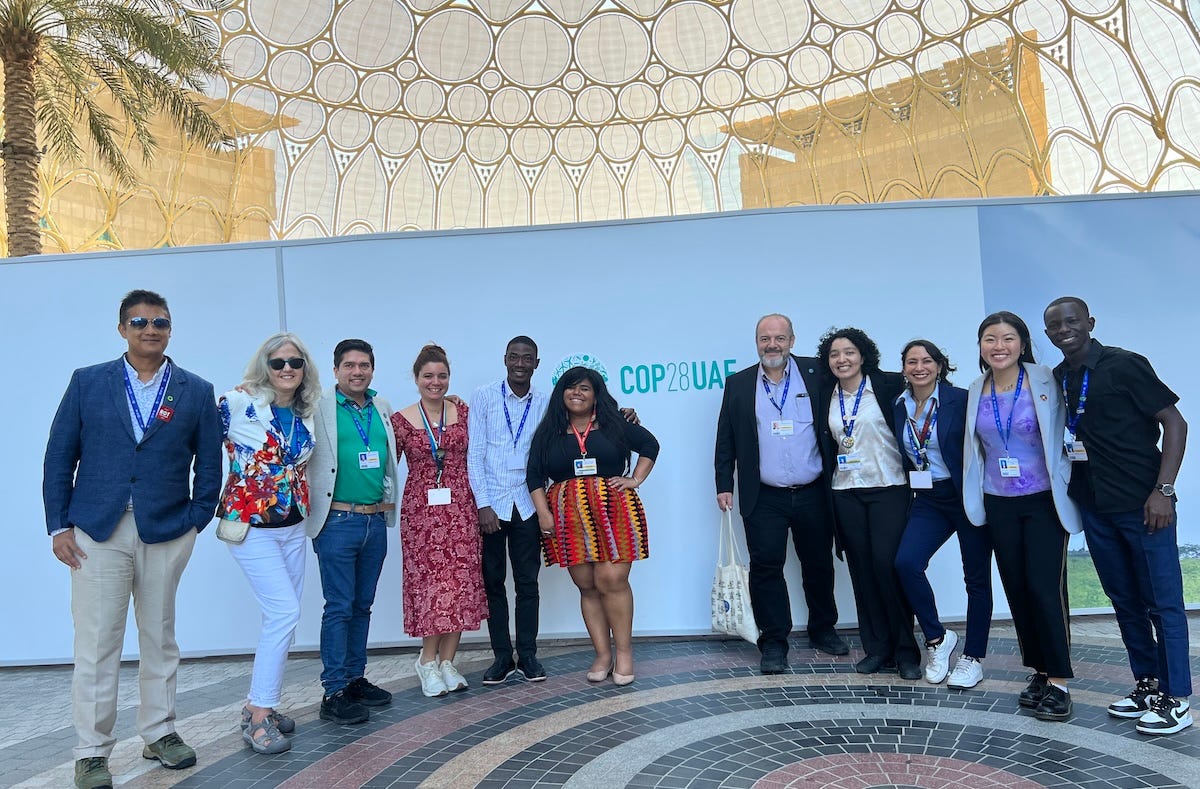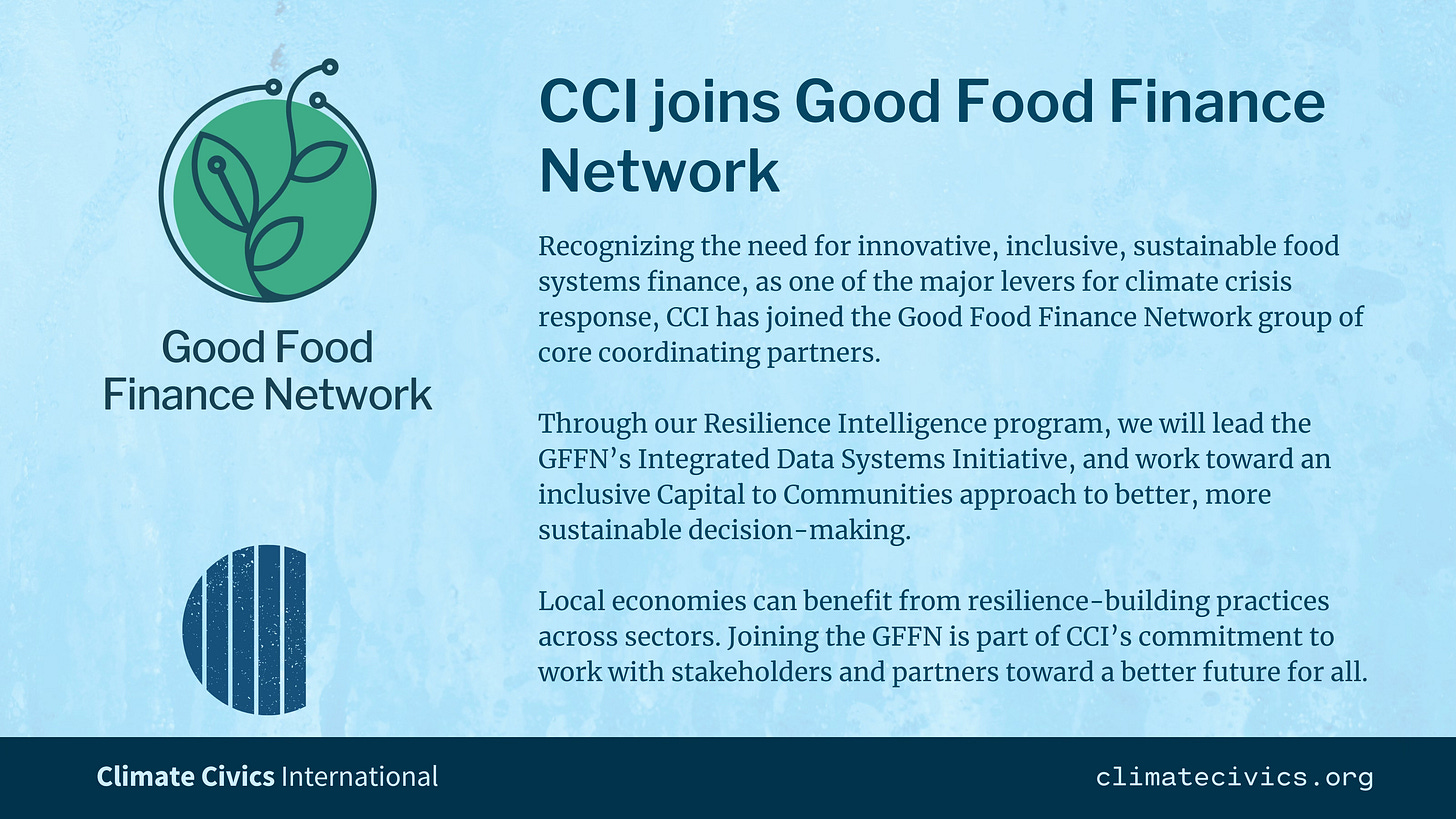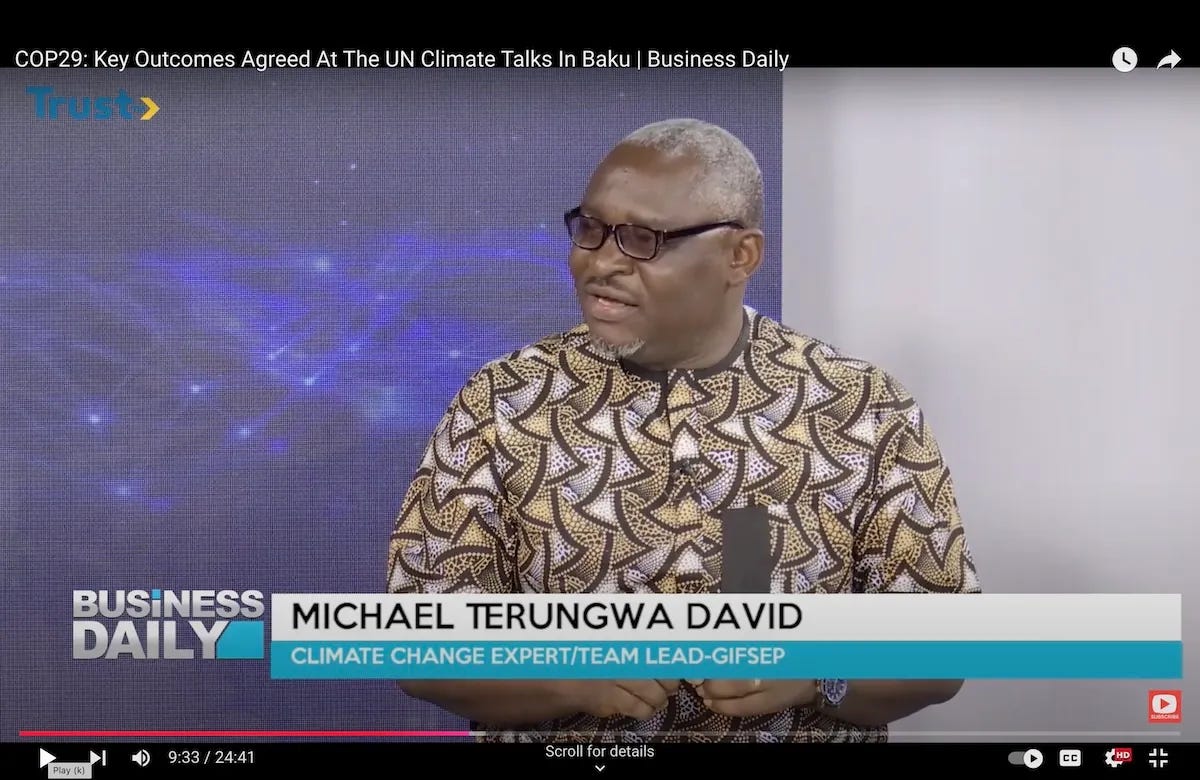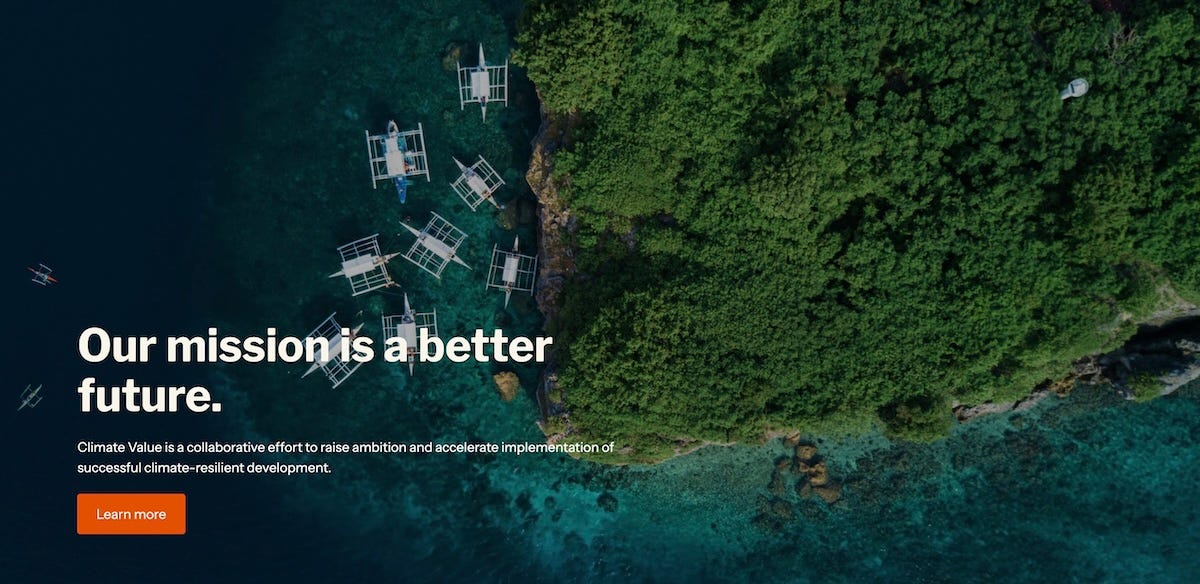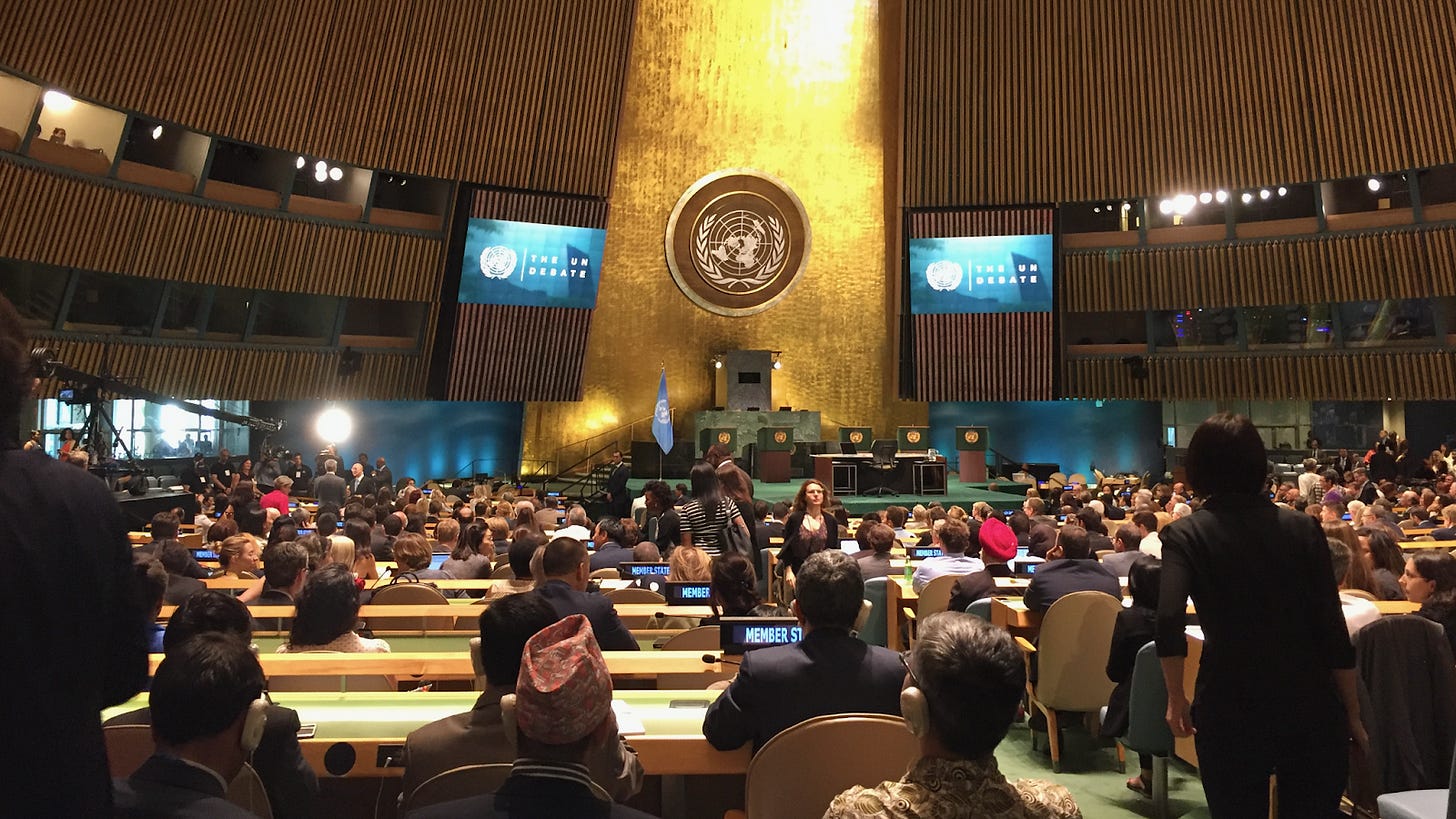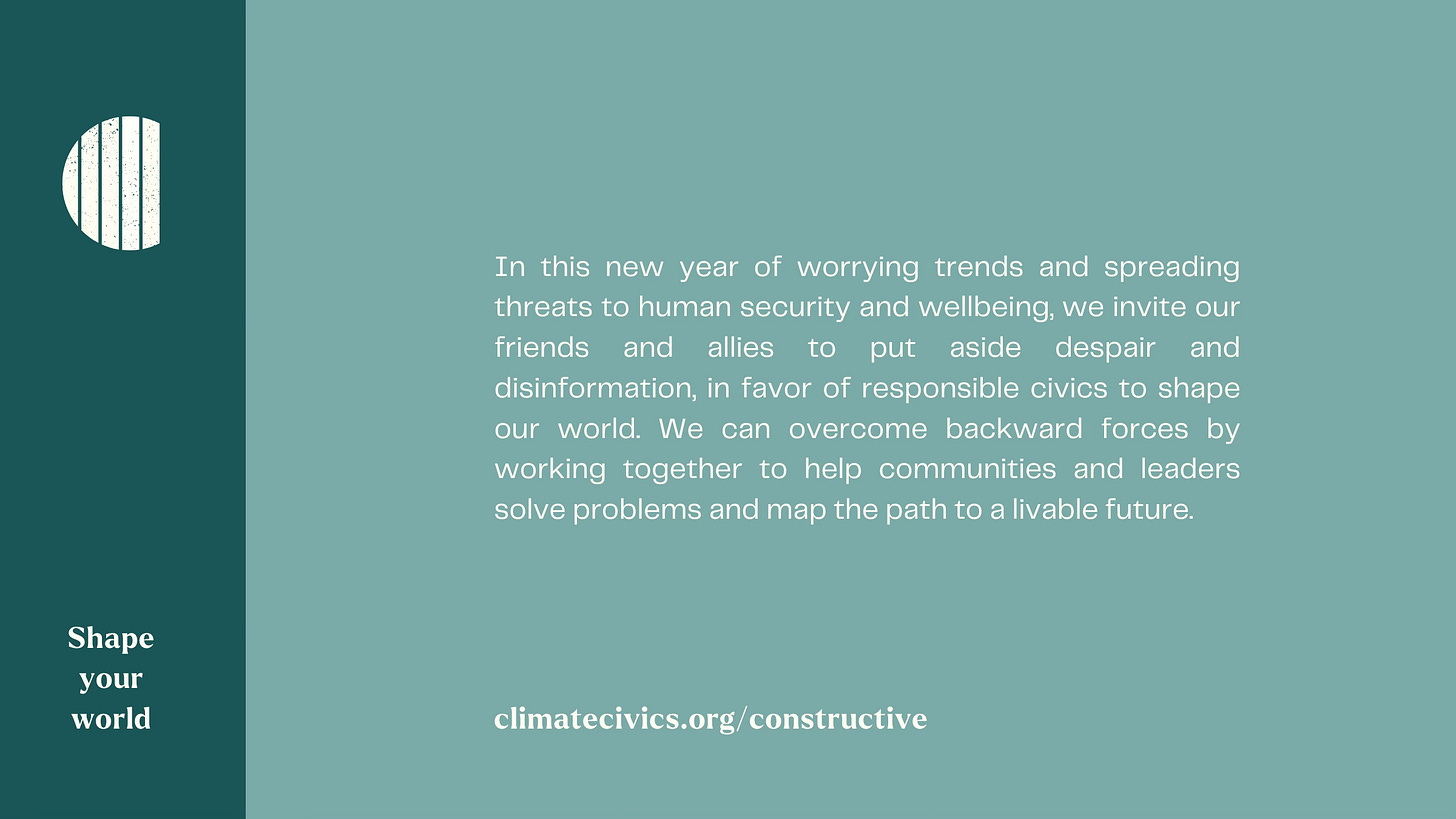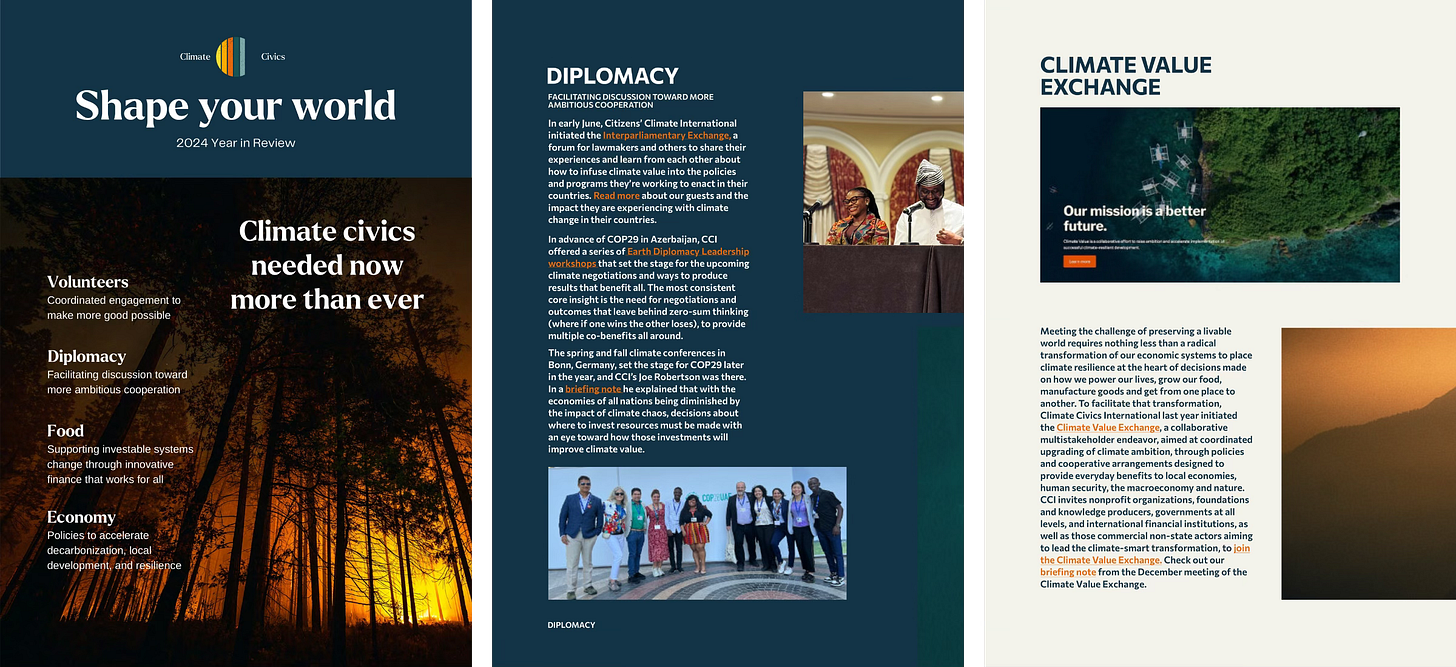Year in Review: Climate civics needed now more than ever
NEWSLETTER, YEAR IN REVIEW — Volunteers: Engagement on solutions; Diplomacy: Coordination on climate action; Food: Support for more resilience; Decarbonization/carbon pricing/resilience
CCI, which empowers advocates in 76 countries to engage their governments on climate solutions, is now Climate Civics International. “We wanted the name to more accurately reflect the importance of civic engagement as the most powerful tool to combat climate change,” said Joe Robertson, executive director of Climate Civics International. “Stakeholders, people whose lives are affected by climate disruption, must be involved in decisions that reduce catastrophic risk and shield communities from the impacts of extreme weather, rising temperatures and rising seas.” The following review of CCI’s activities in 2024 highlights the actions our volunteers took to engage their governments on climate solutions as well as the events and partnerships we undertook to improve international cooperation on climate change. As we face new challenges in a rapidly changing political environment, CCI stands ready to do the things that must be done to preserve a livable world.
Volunteers
Coordinated engagement to make more good possible
AFRICA
In Nigeria, CCI Africa Regional Coordinator Michael Terungwa David (above) led a training for volunteers who then lobbied the state government of Osan to implement the National Climate Change Act. In addition to lobbying governments on the national level, CCI volunteers also lobbied to enact climate policies on a state level. In August, CCI volunteers in Ghana, Tanzania and Nigeria got an op-ed by CCI’s Joe Robertson published about the need to tap into the “Olympic spirit” in efforts to tackle climate change. In the summer, CCI volunteers in Mutare, Zimbabwe, teamed up with the Manica Youth Assembly (MAYA) on a campaign to get the city to endorse the Fossil Fuel Non-Proliferation Treaty. In Ghana, CCI volunteer Cedric Dzelu attended the Summit of the Future at the United Nations in September: “It became clear to me that sustainable change can only happen when diverse voices… are at the decision-making table.”
CANADA
CCL Canada held a conference and lobby day in Ottawa last June, conducting 25 meetings with members of Parliament to defend their nation’s carbon price that is scheduled to reach $170 per ton by 2030. The conference featured a keynote address from Catherine McKenna, Canada’s former Minister of Environment and Climate Change. High school students from CCL Canada recently facilitated an EnROADS policy simulator workshop to other high school students at Science North, Canada's second largest science museum. Seventeen-year-old Sophia Mathur, a CCL Canada volunteer in Sudbury, Ontario, was recently named to Maclean’s Magazine’s Power List of 100 Canadians “shaping the country in 2024.” She’s the daughter of Cathy Orlando, director of CCL Canada (shown above teaching a younger Sophia yoga).
EUROPE
With the European Union rolling out the next phase of its Emissions Trading System (ETS2) as well as its carbon border adjustment mechanism (CBAM), climate advocates fear higher costs will erode public support for emissions reductions policies. In October, Citizens’ Climate Europe led a presentation in Brussels that highlighted the use of “climate income” to allay fears of higher costs. Citizens’ Climate Lobby Germany met in Berlin, and after a day of workshops, they held 25 meetings with members of the Bundestag. The big topic was climate income to relieve the anticipated burden of the EU’s new Emissions Trading system for the heating and transport sector.
MEXICO
CCI volunteer Alba Peña engaged 5,000 Mexican students with interactive EnROADS policy workshops. She was featured on Climate Interactive posts on Twitter, Facebook and LinkedIn. Additionally, for the first time ever, in the presidential election in Mexico, a candidate for the presidency said that polluters must pay.
Diplomacy
Facilitating discussion toward more ambitious cooperation
In early June, Citizens’ Climate International initiated the Interparliamentary Exchange, a forum for lawmakers and others to share their experiences and learn from each other about how to infuse climate value into the policies and programs they’re working to enact in their countries. Read more about our guests and the impact they are experiencing with climate change in their countries.
In advance of COP29 in Azerbaijan, CCI offered a series of Earth Diplomacy Leadership workshops that set the stage for the upcoming climate negotiations and ways to produce results that benefit all. The most consistent core insight is the need for negotiations and outcomes that leave behind zero-sum thinking (where if one wins the other loses), to provide multiple co-benefits all around.
The spring and fall climate conferences in Bonn, Germany, set the stage for COP29 later in the year, and CCI’s Joe Robertson was there. In a briefing note he explained that with the economies of all nations being diminished by the impact of climate chaos, decisions about where to invest resources must be made with an eye toward how those investments will improve climate value.
During COP29, CCI again hosted the People’s Pavilion, an online convening space that welcomed stakeholders from around the world to view events, join discussions, and bring their perspective to coalitions, networks, and delegates participating in the climate conference. This climate empowerment lab was convened and coordinated by Climate Civics International and the ACE Observatory, with generous support from VoLo Foundation.
Prior to the Summit of the Future in New York last September, CCI hosted a Consultation on Priorities for a Livable Future to gather input from stakeholders about the experiences, values, needs, and aspirations of people in diverse circumstances around the world. CCI’s Joe Robertson wrote about the insights we gathered from stakeholders in this post. CCI also included these insights throughout the 2024 Reinventing Prosperity Report.
Food
Supporting systems change through finance that works for all
Climate change and food are inextricably linked. Our changing climate that makes droughts and floods more frequent is reducing crop yields, and agriculture itself contributes 10 percent of greenhouse gas emissions heating up our world. Climate-smart farming is needed, especially in developing countries, to transition to more sustainable practices, and the Good Food Finance Network was created to support critical innovations across the landscape of food-related finance. In 2024, CCI joined that collaborative effort and will lead coordination of the GFFN's Integrated Data Systems Initiative. The first major output from CCI's engagement is release of a ‘Blueprint for Good Food Finance Data Systems Integration’—which aims to guide development of exploratory integrations of data systems, technologies, platforms, and metrics.
During COP29, CCI, the Good Food Finance Network and others co-hosted a side event on food and climate change — Agri-Food Finance and Enabling Policies to Drive Climate Action. The discussion focused on realigning public support for the agrifood sector to achieve climate goals and catalyze financial innovations to deliver climate finance to those leading on food systems. CCI posted a report on this event, which included presentations from CCI board member Myra Jackson and CCI Africa Coordinator Dr. Michael Terungwa David.
In April, CCI Executive Director Joe Robertson published an op-ed in The Hill, a publication covering the U.S. Congress, about the need to help farmers transition to more sustainable practices. Titled “In our changing climate, food availability must be a top concern,” Joe’s piece pointed out that by “switching to low-till or no-till farming and planting cover crops, farmers can sequester carbon in their soil and become part of the solution to climate change.”
In addition to his presentation at the COP29 side event, Dr. Michael Terungwa David was interviewed on Nigerian TV, where he stressed the importance of adaptation and resilience in the agricultural sector, which is why the final figure on climate finance at COP29 was so disappointing: “Look at the issues around flooding in our country. Look at the issues around drought or dry spells. Look at the issues around heat waves and its impact on us, the impact on agriculture, the impact on our economy. We need to build resilience, and that's where adaptation falls. So, some progress was made on adaptation, but adaptation requires an enabler. Without money, you cannot adapt.”
Decarbonization & resilience
Policies to accelerate the pace of transformation & make sustainable prosperity possible
At the start of 2024, CCI launched the Climate Income Working Group with the aim of spreading the word about carbon pricing being the essential tool for reducing carbon emissions and climate income as the policy that can build public support for a price on carbon. In April we led workshops to teach people the basics of carbon pricing and climate income. A recording of that workshop is available here.
For Earth Day (April 22), CCI offered an op-ed from Executive Director Joe Robertson about climate income — “What To Give Our Planet And Its People For Earth Day? Climate Income Is The Perfect Present" — and our volunteers were able to place his piece in seven outlets in five countries. Though a price on carbon might increase costs for households, Joe’s piece said that climate income can “lift that economic burden off the shoulders of people and put it squarely on polluters where it belongs.”
On July 15, Canadians received their quarterly rebate cheque. In anticipation of that payment, CCL Canada flung an op-ed far and wide across Canada about the virtues of pricing carbon with a carbon rebate, and the result was over a dozen publications, including in the Edmonton Journal, Milton Today, and the Sudbury Star.
Last fall, when the Pact for the Future was being released at the Summit of the Future in New York, CCI released our 2024 Reinventing Prosperity Report: “Beyond the Horizon: Priorities for a Livable Future.” The report provides insights into how the world can achieve the Sustainable Development Goals. As the report notes, “We believe it is essential to bring outside voices into the halls of power and to provide local, values-based insights to intergovernmental meetings like the United Nations Summit of the Future.”
In an interview with Business Review in Romania, Citizens’ Climate Europe Chair James Collis (above) said, “Carbon pricing is the cornerstone of the EU Green Deal, because it is the single most effective policy to reduce emissions and it enhances all other environmental legislation.”
Climate Value Exchange
Meeting the challenge of preserving a livable world requires nothing less than a radical transformation of our economic systems to place climate resilience at the heart of decisions made on how we power our lives, grow our food, manufacture goods and get from one place to another. To facilitate that transformation, Climate Civics International last year initiated the Climate Value Exchange, a collaborative multistakeholder endeavor, aimed at coordinated upgrading of climate ambition, through policies and cooperative arrangements designed to provide everyday benefits to local economies, human security, the macroeconomy and nature. CCI invites nonprofit organizations, foundations and knowledge producers, governments at all levels, and international financial institutions, as well as those commercial non-state actors aiming to lead the climate-smart transformation, to join the Climate Value Exchange. Check out our briefing note from the December meeting of the Climate Value Exchange.
Build climate value into all trade decisions. One key area with potential to cut the greenhouse gas emissions heating up our planet is international trade. The manufacturing processes by which tradable goods are made vary widely from country to country. In some countries, environmental standards have reduced the carbon emissions that are embedded in their products. In other countries, such standards are lax or non-existent, and the goods they sell around the world are “dirty,” with a high level of carbon emitted in the manufacturing process. Learn more in our blog post about what is being done to make international trade a part of the solution on climate change.
Upcoming Events
Good Food Finance Dialogue on Mechanisms for Mobilization – Wednesday, January 22, 2025. The Good Food Finance Network was established alongside the UN Food Systems Summit to provide actionable next steps in all of the areas identified as part of the global Food Finance Architecture. In 2023 and 2024, the GFFN committed to design and establishment of a co-investment platform for food systems transformation. That work will be the focus of this meeting. More information.
Earth Diplomacy Leadership: The Belem Opportunity – Wednesday, February 5, 2025. This workshop will bring together climate leaders and negotiators with stakeholders and learners, to explore the key challenges and opportunities facing negotiators at COP30 in 2025, including activation of new financial mechanisms and a shift toward climate-smart trade and commodities. More information.
Climate Value Exchange Monthly Planning Meeting – Monday, February 10. Monthly virtual meeting of CCI team members and partners and allies of the Climate Value Exchange. The focus is implementation of actions—including incentives and investment strategies—that support non-market cooperative climate action to build climate value in the everyday economy. More information.
CCI Volunteer Network Monthly Check-in – Tuesday, February 11.
Virtual meeting of Climate Civics International leaders, affiliated local chapters, and volunteers. Our February meeting will review CCI focus areas, local organizing priorities, and help volunteer group leaders develop a group plan for 2025, based on their local or national Team Goal. More information.




